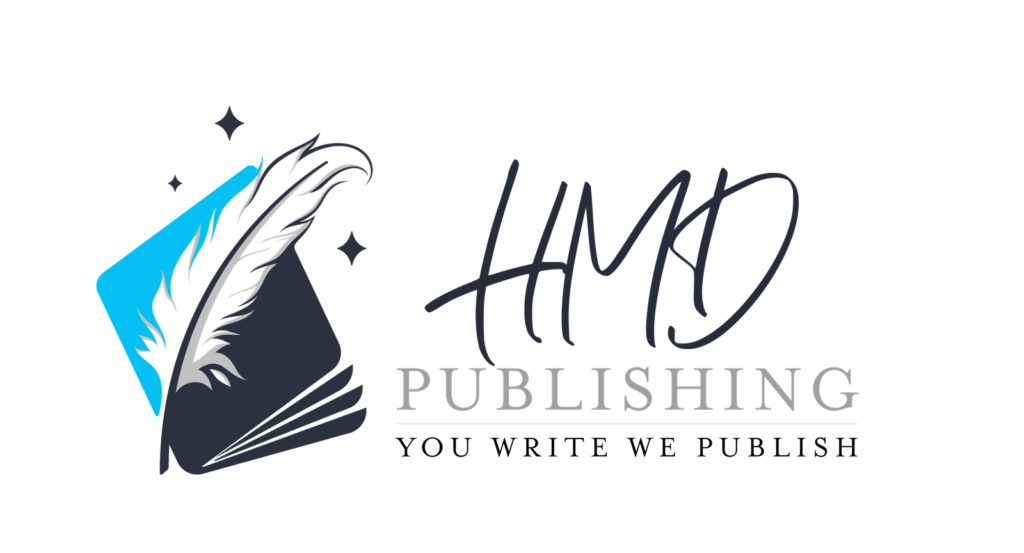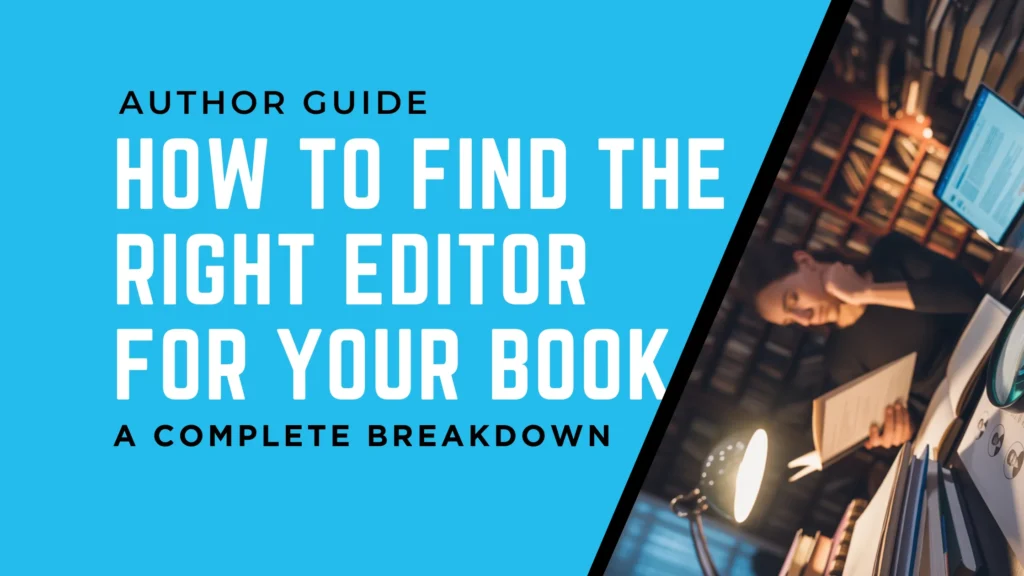A great editor doesn’t just fix mistakes; they help your book become the best version of itself.
If you’ve poured your heart into writing a manuscript, handing it to an editor can feel daunting. But here’s the truth: the right editor isn’t just a proofreader. They’re a creative partner who can refine your structure, strengthen your voice, and bring your story to life.
Whether you’re aiming for self-publishing success or preparing to pitch to traditional publishers, finding the right editor is one of the most important steps in your publishing journey.
In this guide, we’ll break down the types of editing you need to know, the questions you should ask, and the red flags to avoid, so you can confidently choose the right editor for your book.

Questions to Ask Before Hiring
Imagine yourself over coffee with a potential editor. What would you want to know? To clearly understand their potential, you should ask them certain questions, such as first asking them to describe their editing superpower. Do they dive deep into story structure, polish your prose line by line, or focus on catching every rogue comma? Then, inquire about the genres they fall in love with. Remember that every editor has their comfort zone. Then invite them to share examples of books they’ve shaped; real-life success stories reveal more than resumes ever could. Turn the tables and ask about their workflow. Do they prefer tracked changes in Word, lively email exchanges, or scheduled Zoom check-ins?
Understanding this rhythm ensures you won’t be caught off guard when comments start rolling in. Finally, discuss money and timing with transparency: how do they calculate their fee, and what’s their realistic turnaround? Clarity here sets everyone up for a stress-free collaboration on both sides
8 Proven Marketing Strategies for Self‑Published Authors
Red Flags To Watch Out For
When something doesn’t sit right with you, don’t ignore that feeling, your instincts usually know the truth before your mind does.. Here are some red flags you should never overlook if present:
| No samples or references available | Editors should be willing to share past work or client testimonials; refusal suggests inexperience or poor quality. |
| Lack of a clear process or communication plan | It shows they might not fully trust their own abilities—or perhaps they’re trying to cover up weak editing work. |
| Unrealistically fast turnaround | Thorough editing takes time; rushed edits often miss structural issues and subtleties of style. |
| Lack of clear process or communication plan | Absence of defined workflows, timelines, or style sheets leads to confusion and scope creep. |
| No follow-up or limited revisions | Editing is a back-and-forth process. When someone can’t take feedback or refuses to make changes, it gets harder to keep things clear—and even harder to build trust. |
| Expects rock-bottom prices | Extremely low fees often correlate with inexperienced editors or hidden costs later. |
| Cannot articulate your book’s objectives or genre specifics | An editor must understand your project’s goals and audience; inability to do so warns of misaligned edits. |
| Pressure for upfront full payment without contract terms | Professional editors balance payment schedules with deliverables; all-up-front demands can indicate risk. |
| Repeated missed deadlines | Editors should be willing to share past work or client testimonials; refusal suggests inexperience or poor quality. |
How to Vet Experience and Past Work
By vetting experience, you can ensure your editor has the required skills and track record:
- Request a Detailed Portfolio. Examine full book acknowledgements or publisher credits. Note projects where they served as in-house or freelance editors for traditional publishers; those editors often bring insider knowledge of market trends and submission expectations.
- Check Professional Memberships Membership in reputable bodies such as the Editorial Freelancers Association (EFA), Chartered Institute of Editing and Proofreading (CIEP), or American Society of Journalists and Authors (ASJA) indicates commitment to ongoing professional standards.
- Interview Past Clients Speak directly with authors for candid insights into the editor’s strengths, communication style, adherence to deadlines, and value addition. Inquire how the editor handled revisions, feedback negotiations, and unexpected challenges.
- Assess Specialization and Genre Fit: Confirm they’ve edited books that align closely with your genre’s tone, structure, and audience expectations. A romance editor, for instance, may not suit a technical non-fiction work.
- Review Sample Edits Critically Compare their suggestions against your writing goals: do they preserve your voice while improving clarity? Are structural recommendations coherent and aligned with narrative arcs? Look for consistency in markup and professional-quality feedback.
- Verify Qualifications and Training. While certifications aren’t always mandatory, editors with formal training or recognized certifications (e.g., CIEP qualifications) demonstrate they’ve mastered industry-standard practices and style guides.
How Much Does Self-Publishing Cost? A Complete Breakdown
Final Thoughts
Securing the right editor is an investment in your book’s success. By clarifying your needs, asking incisive questions, heeding warning signs, and rigorously vetting credentials and past work, you ensure your manuscript receives the expert guidance it deserves. A strong editorial partnership not only perfects your current project but also enriches your craft for future works.
Ready to take your manuscript from draft to polished perfection?
At HMD Publishing, our professional editors specialize in turning good stories into great books. Whether you need a deep developmental edit or a final proofread, we’ll help your work shine, and get it ready for publication.
Book your free consultation today and let’s bring your book to life.




